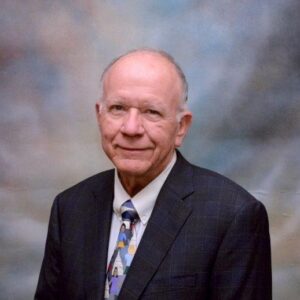By John Ruoff
The South Carolina House is considering legislation (H. 5118) that skews disproportionately toward utilities’ interests and would greatly diminish consumers’ representation in the deliberations of the Public Service Commission.
House leadership has not learned from the ill-fated Base Load Review Act which saddled ratepayers with billions of dollars to pay for the abandoned V.C. Summer 2 and 3 nuclear plants.
H. 5118 would effectively direct the Public Service Commission to approve new construction of generating plants, transmission lines and natural gas pipelines in the name of “economic development.” The General Assembly, based solely on the wishes of utilities, declares the construction of these facilities in the public interest.
Our laws now send these decisions to the commission to balance the interests of rate-paying consumers and utility shareholders while cognizant of the need to ensure adequate and reliable energy. They exercise that balancing only after hearing extensive testimony from witnesses, including experts on appropriate returns to shareholders.
H. 5118 makes “economic development” a primary consideration in that balancing. They put not just a thumb, but a full hand, on the scale, leading to a “build … build … build” default.
Ratepayers pay for new construction through higher rates. Utility shareholders reap the benefits.
Elevating “economic development” does nothing to address economic development that makes no sense.
The Commerce Department announces server farm after server farm that sucks up massive amounts of electricity and water. These facilities employ few people and spend the bulk of their capital investment outside South Carolina. H. 5118 makes no distinction between good and ill-advised economic development.
The bill does not direct the commission to roll over and play dead for these projects, but the message to commissioners to do that is clear. The 2007 Base Load Review Act likewise did not direct construction of Summer 2 and 3, but the commission heard the message. The General Assembly elects commissioners.
At the same time H. 5118 delivers the message to do whatever the utilities ask, it fires the current seven commissioners elected from each of our congressional districts. It replaces them with three commissioners elected by the General Assembly at large. Three commissioners are easier to cow than seven.
In 2018, reacting to the Summer debacle, the General Assembly rewrote the mission of the Office of Regulatory Staff to looking out for utility consumers.
They dropped the requirement that the agency look out for the financial well-being of the utilities and their shareholders and economic development. That conflict of interest contributed to the Summer regulatory failure.
H. 5118 restores the failed pre-2018 mission. An agency required to look out for utilities and economic development can’t adequately advocate for residential consumers. We already have an entity tasked to balance those interests: The Public Service Commission.
H. 5118 axes another post-Summer reform by eliminating the role of the consumer advocate in utility proceedings. In the face of well-funded utility lawyers and experts, H. 5118 leaves residential ratepayers bare.
The solution to growing electric demand in 2007 was to build faster with less oversight. The proposed solution in 2024 is to build faster with less oversight.
“Those who cannot remember their past are condemned to repeat it:” George Santayana, The Life of Reason.
Ruoff has participated in utility regulation and policy debates in South Carolina for 45 years. He has been a lobbyist, researcher, community organizer, manager and trainer for nonprofit organizations. He is also an AARP volunteer.












